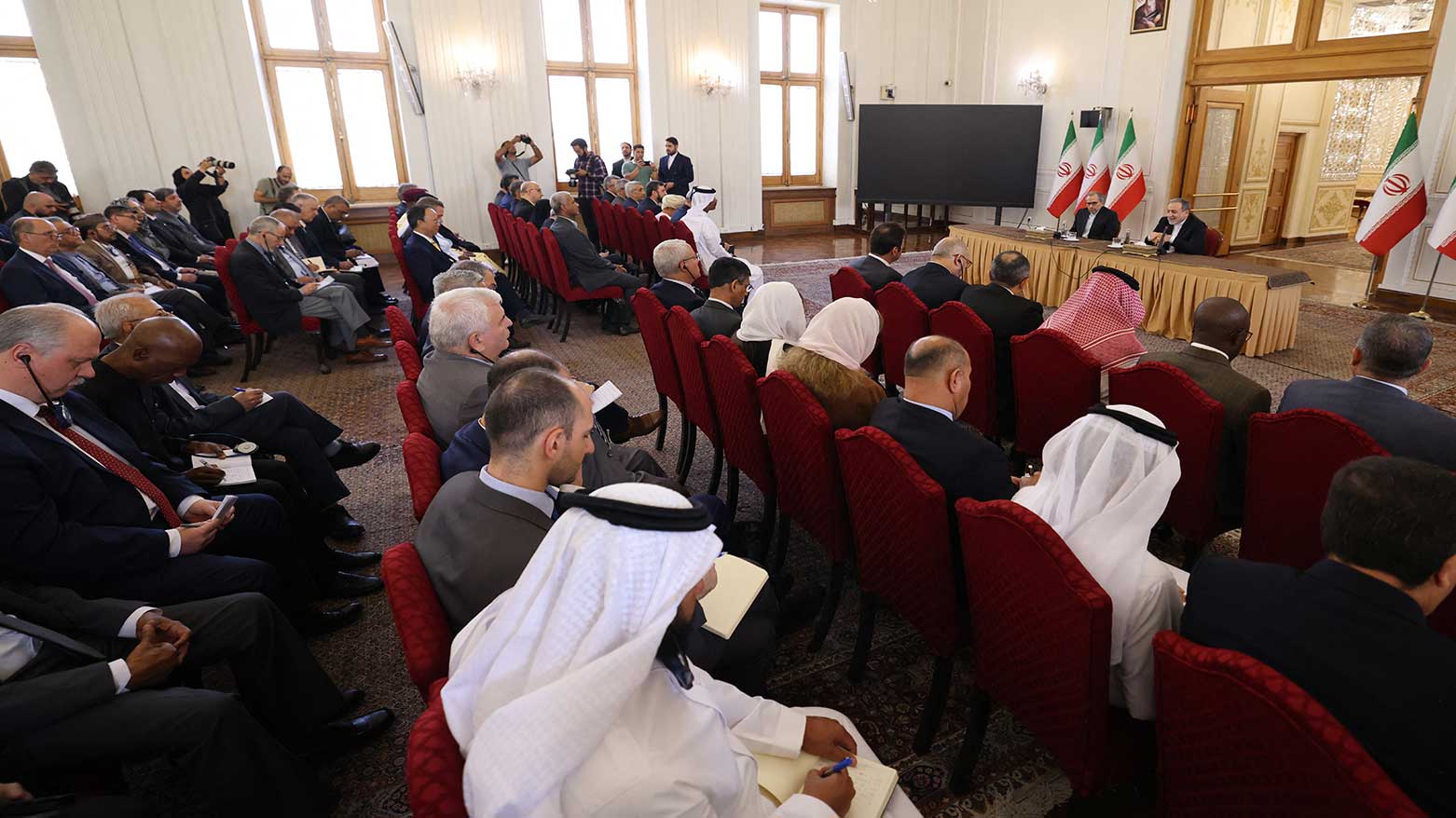Iran Declares Cooperation with UN Nuclear Watchdog ‘No Longer Relevant’ After Sanctions Reimposed
Foreign Minister Abbas Araghchi says European powers have “diminished their role” in nuclear diplomacy as Tehran signals a harder line following the UN snapback of sanctions.

ERBIL (Kurdistan24) — Iran’s Foreign Minister Abbas Araghchi said Sunday that his country’s cooperation with the International Atomic Energy Agency (IAEA) is “no longer relevant” following the reimposition of United Nations sanctions on Tehran, signaling a major escalation in tensions between Iran and the West.
“The Cairo agreement is no longer relevant for our cooperation with the IAEA,” Araghchi said, referring to the framework deal signed last September to restore inspections at Iranian nuclear facilities.
The agreement had been seen as a cautious step toward rebuilding trust after Iran suspended cooperation in the wake of Israeli and US strikes on its nuclear sites in June.
But that cooperation effectively collapsed after Britain, France, and Germany — three key signatories of the 2015 nuclear accord — triggered the return of UN sanctions, accusing Iran of breaching its commitments under the deal.
Tehran had warned it would sever ties with the UN agency if such a move was made.
“The three European countries thought they had leverage by threatening a snapback,” Araghchi told diplomats in Tehran. “Now they have used this lever and seen the results. They have diminished their role and eliminated the justification for negotiations with them.”
The foreign minister added that the European trio “will have a much smaller role than in the past” in any future nuclear diplomacy, a remark widely interpreted as Iran’s intent to focus future engagement — if any — directly with the United States or through regional intermediaries.
Iran has also accused the IAEA of double standards, saying the agency failed to condemn Israeli attacks on its nuclear infrastructure despite Tehran’s compliance with the Non-Proliferation Treaty (NPT).
Some hardline lawmakers have since urged the government to withdraw from the NPT altogether, though President Masoud Pezeshkian has stated Iran remains committed to its legal obligations under the treaty.
Araghchi hinted that Tehran’s next steps regarding cooperation with the IAEA “will be announced soon,” without providing details, though he noted there was “still room for diplomacy.”
The developments mark another setback for international efforts to revive nuclear diplomacy with Iran.
The Cairo framework, brokered by Egypt and supported by the UN, was intended to provide limited access for inspectors and prevent further escalation after the June attacks that severely damaged Iranian nuclear and military sites.
Negotiations between Tehran and Washington, which began in April to craft a new nuclear deal, broke down shortly after those strikes. Iran accused the US of failing to rein in Israel and demanded guarantees before returning to talks.
The reimposition of UN sanctions — known as the “snapback mechanism” — effectively restores a global arms embargo and financial restrictions on Iran lifted under the 2015 Joint Comprehensive Plan of Action (JCPOA).
The move has deepened Iran’s economic isolation at a time of mounting internal strain and regional volatility.
In a bid to stabilize its battered economy and counter the impact of renewed international sanctions, Iran’s parliament on Sunday approved a long-delayed plan to remove four zeros from its national currency, the rial.
The measure, reported by the Iranian Labour News Agency (ILNA), will replace 10,000 old rials with one new rial in an effort to simplify everyday transactions and restore some confidence in the country’s monetary system.
The move has sparked mixed reactions among economists and the public. Supporters hail it as a necessary psychological and logistical adjustment to counter hyperinflation and reduce the cost of handling nearly worthless cash.
Critics, however, warn that the plan is merely cosmetic unless accompanied by deeper structural reforms to tackle the roots of Iran’s economic woes, such as inflation, fiscal mismanagement, and heavy state control over key industries.
Economic experts argue that Iran’s redenomination could either restore limited stability or expose the fragility of its economic model under sanctions—depending entirely on whether it is matched by real financial discipline and credible policy reform.
However, on the broader geopolitical front, analysts warn that the collapse of cooperation with the IAEA could drive Iran’s nuclear activities deeper into secrecy, heightening regional tensions and raising the risk of a new confrontation.
Israel has repeatedly vowed to act militarily if Iran moves closer to developing nuclear weapons capability.
The Trump administration, which had supported a diplomatic reopening with Iran through indirect talks, now faces the challenge of balancing pressure from allies like Israel with calls from international partners to keep diplomatic channels open.
For Iran, the decision reflects both frustration with the West and confidence in its strengthened regional ties — particularly with Russia, China, and neighboring Arab states — as it seeks alternatives to Western-led engagement.